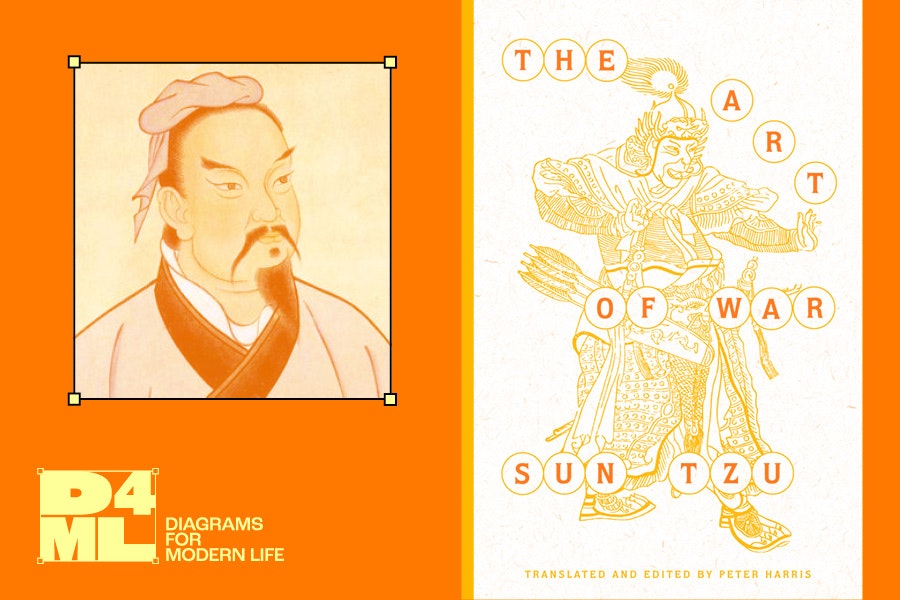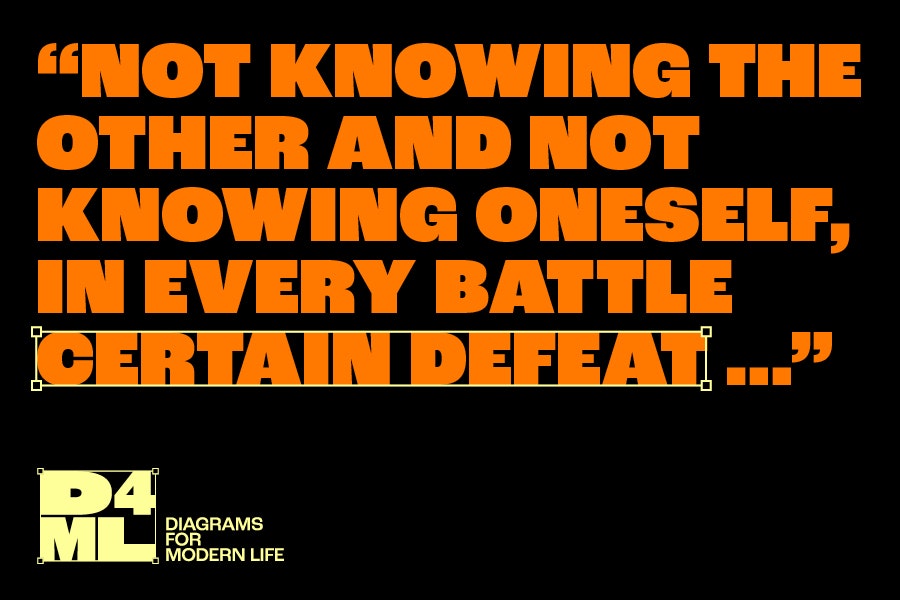Sun Tzu and Business Superstitions | Blog | Corke Wallis
Founder / Creative Director
@10:31, 24.04.2025

Superstition and new business pitches probably shouldn't mix - but somehow, they always seem to. Here’s how some ancient Chinese wisdom cured my irrational fear of saying "no" to the wrong opportunities.
Are you superstitious about new business?
Every time a pitch comes in, I torment myself. I think that if I turn it down, the new business gods will be displeased, and I’ll never get another one. So I tend to go for everything, even when I know I shouldn’t. It’s not healthy, so I’m sharing here how I’ve come around to reassessing how I approach new pitches, hopefully this might help you.
It's fascinating - and a bit embarrassing - how even the most rational and seasoned business professionals can fall prey to superstition. For me, it always surfaces around pitching for new business. Maybe you've been there too, nervously considering whether turning down one opportunity might somehow offend fate itself. It's irrational, I know, but deeply ingrained.
Recently, while digging around looking for insights on game theory (as you do when you're trying to rationalise irrational fears), I stumbled across something from 'The Art of War' by Sun Tzu. Yes, I know, quoting Sun Tzu is a cliché, but sometimes clichés exist because they're genuinely useful. This particular snippet perfectly framed my dilemma around pitches - and more importantly, gave me a logical decision framework for when to get involved.

From The Art of War:
"Knowing the other and knowing oneself, in one hundred battles no danger…"
For me, this would be something like real estate. I've been immersed in it for years. I know the intricacies, have a backlog of good stories to tell, and plenty of credible names to drop. When something real estate-related comes up, it's a no-brainer. Of course we'll pitch. Confidence flows from knowing exactly how we can add value, who we're up against, and precisely what clients expect.
Then Sun Tzu continues:
"Not knowing the other and knowing oneself, one victory for one loss…"
This might be more like a Deeptech startup scenario. I’ve got a few under my belt, so I understand the common issues: satisfying demanding investors, attracting and retaining top-tier talent, building awareness and credibility, and managing the (often challenging) dynamic with engineers who frequently view branding and marketing as a necessary evil at best - or a total nuisance at worst. In these cases, there's potential, but it's often tricky making the client see branding as a genuine priority. Sometimes we win, sometimes we don't. It's balanced risk.
And finally, the Master’s words hit home:
"Not knowing the other and not knowing oneself, in every battle certain defeat…"

A perfect example: I went after something last year involving strawberries - yes, strawberries - a B2B proposition that looked appealing mostly because it came during a quiet patch. We assembled a strategy and a direction that seemed solid at the time. On reflection, it was a total shot in the dark. Honestly, I should have just gone on holiday. It wasn't our expertise; we had no real insight into the industry, and frankly, strawberries were never going to be in our sweet spot.
If I’m ruthlessly honest, it’s amazing how many pitches I've pursued that clearly fall into Sun Tzu’s third category. There's something about the fear of missing out that pushes otherwise sensible people - myself included - to chase opportunities we have no business pursuing. It's costly in terms of time, resources, morale, and, ultimately, confidence.
But now, thanks to a little ancient wisdom, I have a structured decision-making framework. When a new opportunity comes through, I can quickly assess:
Do I deeply understand the client’s industry?
Do I know exactly what value my team and I can provide?
Can I confidently say we're a good fit?
If the answers aren’t confidently positive, it’s time to politely decline and move on. The clarity is liberating.
So I'll stop wasting my time.
And maybe, just maybe, I'll start enjoying my holidays more.
